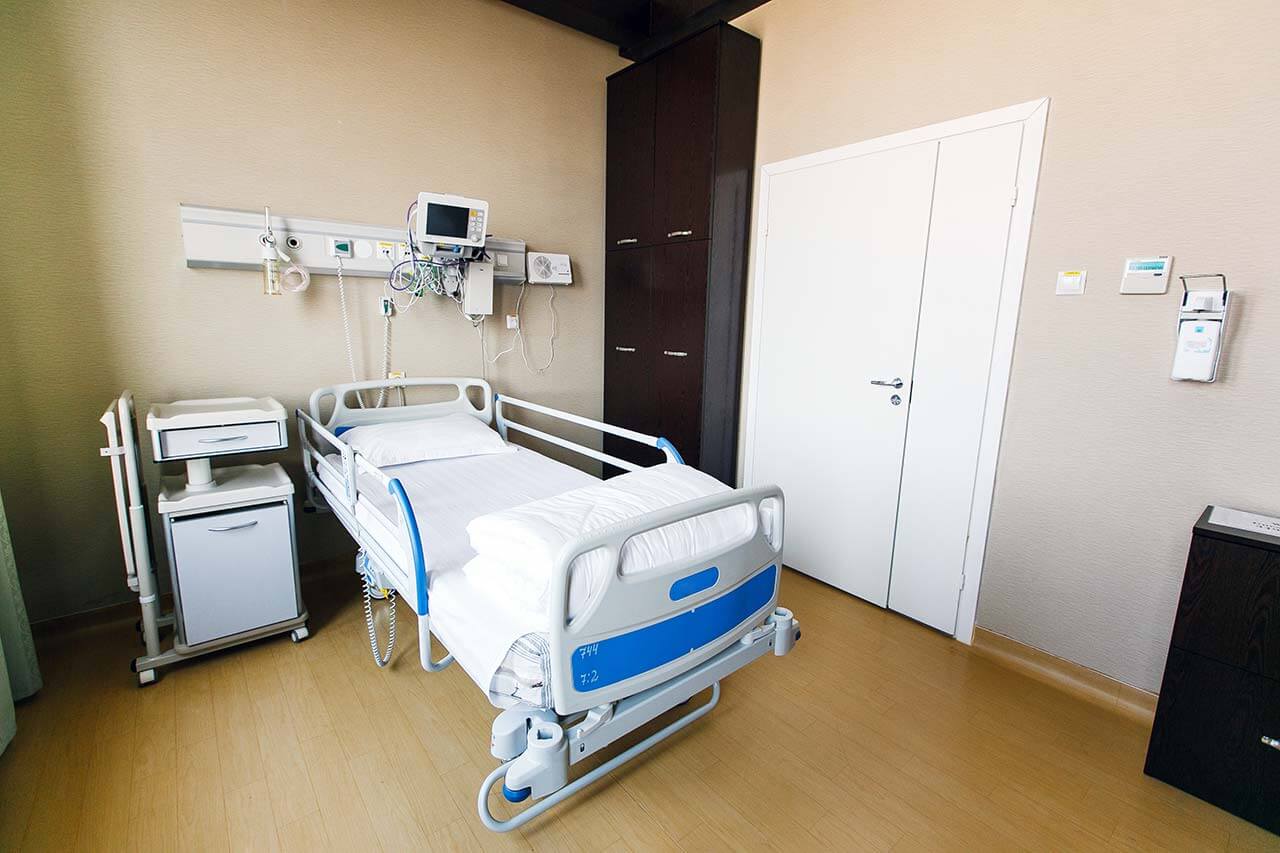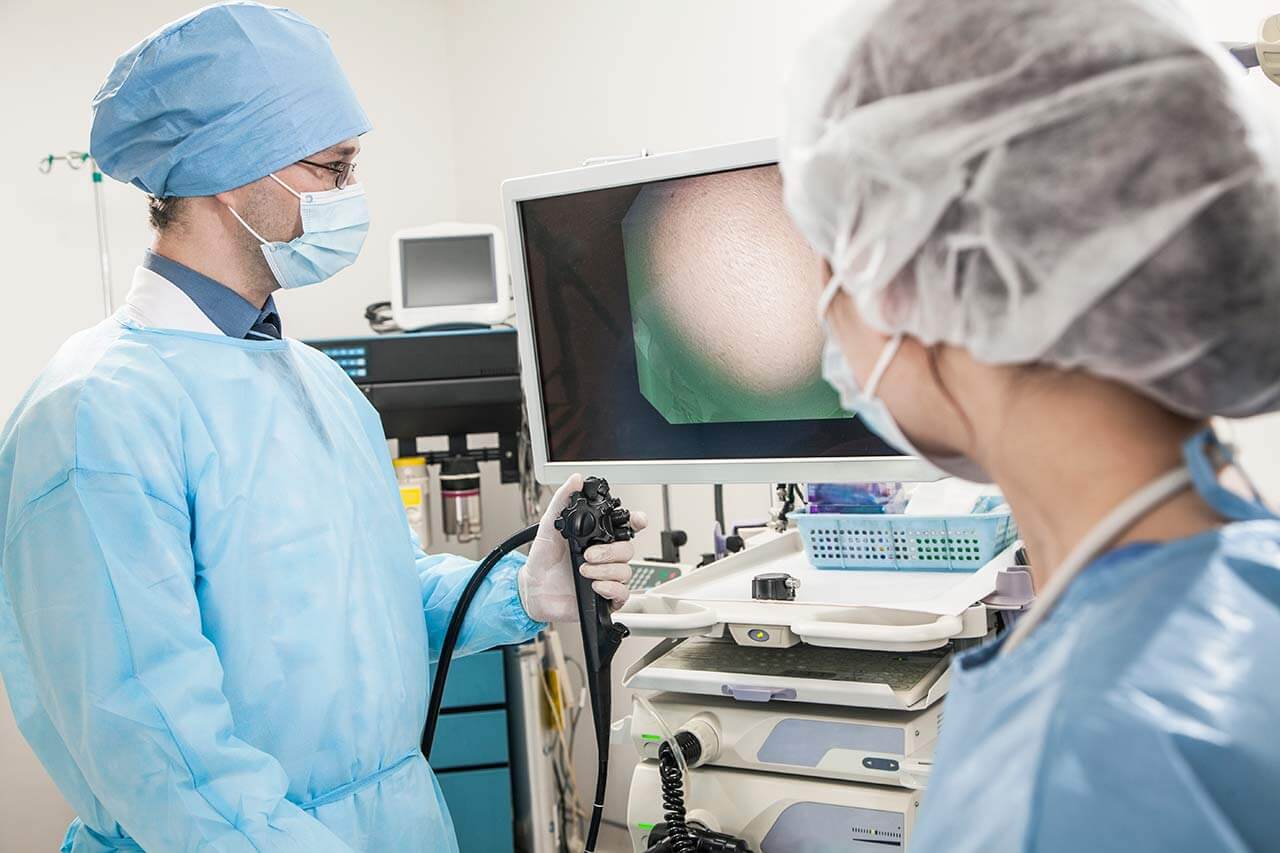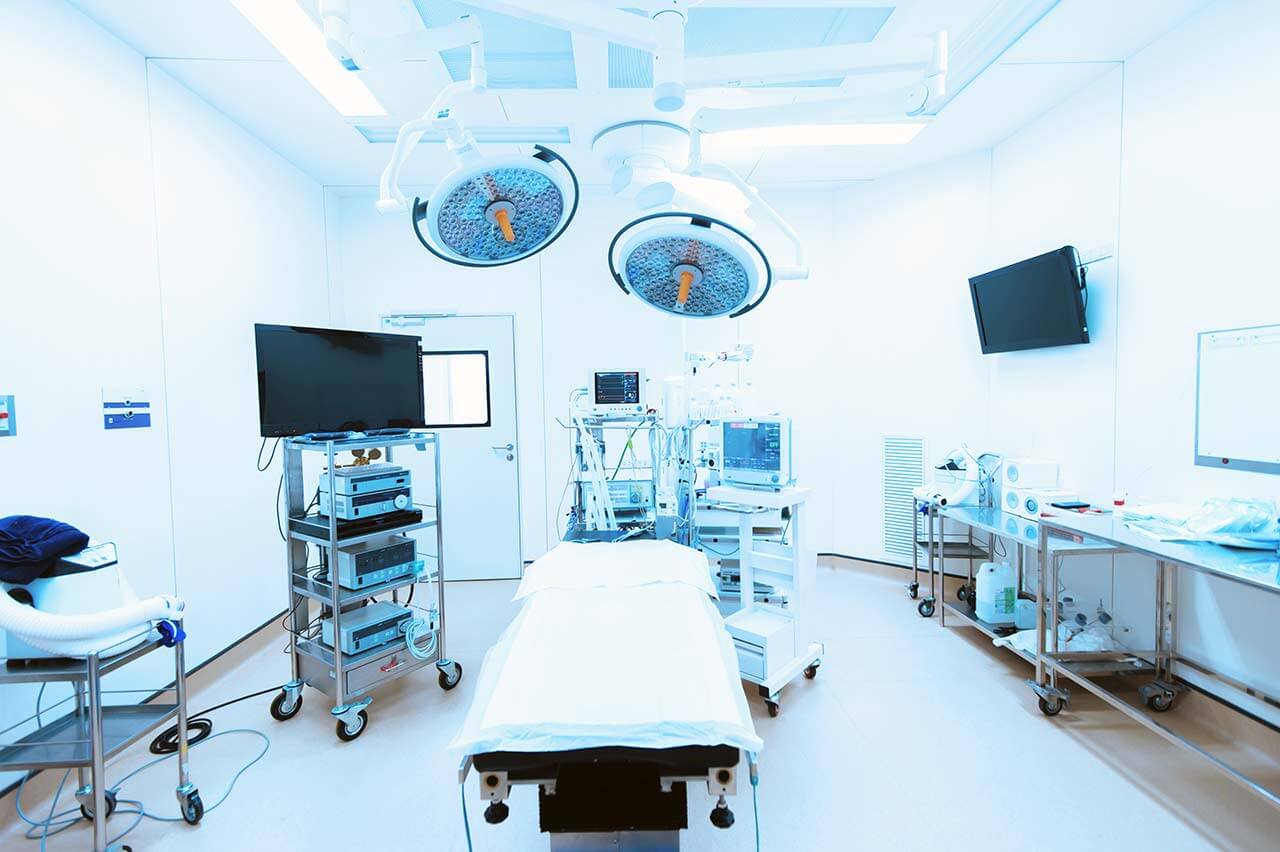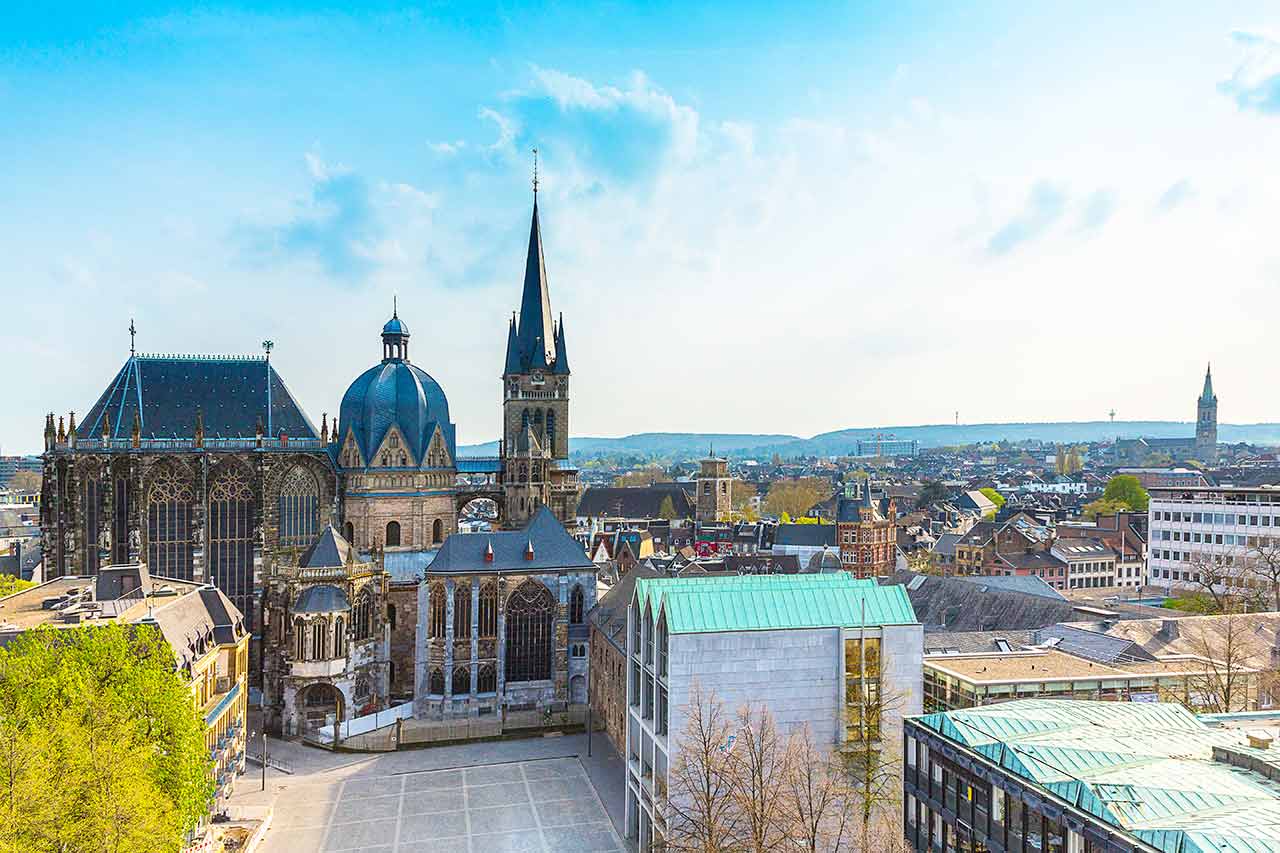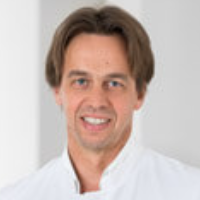
The program includes:
- Initial presentation in the clinic
- clinical history taking
- review of medical records
- physical examination
- laboratory tests:
- complete blood count
- biochemical analysis of blood
- inflammation indicators (CRP, ESR)
- indicators blood coagulation
- TSH-basal
- blood gas analysis
- ANA
- chest x-ray examination
- bronchography
- measurement of arterial blood pressure
- electrocardiogram (ECG)
- echocardiography (ECHO)
- high-resolution computed tomography (HR-CT)
- pulmonary function test
- bronchoscopy with biopsy
- histological and microbiological examination
- bronchial lavage
- consultation of related specialists
- symptomatic specific treatment
- the cost of essential medicines and materials
- nursing services
- control examinations
- full hospital accommodation
- developing of further guidance
Required documents
- Medical records
- Chest X-ray, MRI/CT scan (if available)
Service
You may also book:
 BookingHealth Price from:
BookingHealth Price from:
About the department
The Department of Pulmonology at the Luisenhospital Aachen offers all the options for modern diagnostics and treatment of respiratory diseases. The department's specialists provide medical care to patients with chronic obstructive pulmonary disease, respiratory allergies, sarcoidosis, and malignant tumors of the lungs, bronchi, pleura, and mediastinum. When treating patients with lung diseases, the department's doctors cooperate with thoracic surgeons. The department is proud of its advanced infrastructure and state-of-the-art technical base. Examinations take place in diagnostic rooms equipped with cutting-edge systems for imaging tests of the chest organs, pulmonary function tests, and bronchoscopic examinations. The department also has a modern Intensive Care Unit with 18 beds, 6 of them are for patients who require weaning from mechanical ventilation. The department's doctors prefer a comprehensive approach to treatment, so the team also includes experienced specialists in pulmonary rehabilitation and physiotherapists. The department's doctors make every effort to provide each patient with top-class medical care in a comfortable and friendly environment. The department is headed by Dr. med. Björn Schwick.
The key to successful treatment is accurate diagnostics. The department's pulmonologists have various diagnostic options for a comprehensive assessment of the condition and function of the respiratory system. Patients can undergo spirometry, spiroergometry, body plethysmography, lung diffusion testing, and a 6-minute walk test in the rooms for pulmonary function tests. The medical facility also has rooms for X-ray diagnostics and ultrasound examinations of the chest organs. In addition, the department's specialists offer patients endoscopic examinations, such as bronchoscopy and thoracoscopy.
The department is one of the few medical centers in Germany where state-of-the-art equipment for electromagnetic navigation bronchoscopy (ENB) is available. This technique makes it possible to detect malignant lung tumors in their early stages. The procedure has a high diagnostic value, as it provides an opportunity to assess the condition of the deep lung structures, the examination of which, with the help of classical bronchoscopy, cannot guarantee an accurate diagnosis. Before the procedure of electromagnetic navigation bronchoscopy, the patient undergoes a lung CT scan. Based on the images obtained, a 3D "map" of the patient's lungs is created, which helps the doctor make a diagnosis. The procedure is performed under sedation to avoid any pain and discomfort. During the manipulation, the pulmonologist uses a bronchoscope with an electromagnetic sensor attached to it, which interacts with the electromagnetic field generator located outside the patient's body. Using a 3D "map" of the patient's lungs, the specialist advances the bronchoscope through the airways. If neoplasms are detected, the electromagnetic sensor built into the bronchoscope displays them in real-time, and the doctor performs a biopsy of the suspicious area. If the biopsy results confirm the presence of an oncologic process, electromagnetic navigation bronchoscopy can also be used to perform ablation or brachytherapy.
Many therapeutic procedures are routinely performed in the department's endoscopy rooms, including argon plasma coagulation, cryotherapy, stent implantation, endoscopic lung volume reduction procedures, foreign body removal from the airways, and hemostasis to stop internal hemorrhage in the respiratory system. All of these treatment methods are minimally invasive. These are performed under sedation and virtually eliminate any risks to the patient's health. At the same time, the effectiveness of endoscopic treatment is comparable to the results of classical open surgery.
The department's range of diagnostic and therapeutic services includes:
- Diagnostics
- Imaging lung diagnostics
- X-ray scans
- Ultrasound scans
- Pulmonary function tests
- Spirometry
- Spiroergometry
- Body plethysmography
- Lung diffusion testing
- 6-minute walk test
- Diagnostic endoscopy
- Classical bronchoscopy
- Electromagnetic navigation bronchoscopy (innovative diagnostic method)
- Thoracoscopy
- Imaging lung diagnostics
- Treatment
- Drug therapy with pills, injections, and infusions
- Oxygen therapy, including non-invasive ventilation, artificial ventilation, and weaning from mechanical ventilation
- Breathing exercises and physiotherapy
- Endoscopic therapeutic procedures
- Argon plasma coagulation
- Cryotherapy
- Stent implantation
- Lung volume reduction
- Foreign body removal from the airways
- Hemostasis
- Percutaneous endoscopic tracheostomy
- Other diagnostic and treatment methods
Curriculum vitae
Professional Career
- 1996 - 2004 Assistant physician, St. Augusta Hospital Duesseldorf, Gerresheimer Hospital Duesseldorf, Nordseeklinik Sylt, and Bethanien Moers Hospital.
- 2004 - 2007 Senior Physician, Sana Hospital Luebeck.
- 2007 - 2014 Senior Physician, St. Francis Hospital Aachen.
- 2014 - 2019 Head Physician, Department of Pulmonology, Rhine-Maas Hospital Aachen.
- Since 01.07.2019 Head Physician, Department of Pulmonology, Luisenhospital Aachen.
Photo of the doctor: (c) Luisenhospital Aachen
About hospital
The Luisenhospital Aachen is a modern health facility that offers top-class European-standard service. The medical complex is an academic hospital of RWTH Aachen University, which provides patients with access to innovations in diagnosis and treatment. The hospital first opened its doors to patients in 1967 and has been carrying out a successful clinical practice for more than 155 years.
The hospital has 15 specialized departments, each of which employs a team of experienced and competent specialists who prioritize patients' health. The main areas of clinical activity at the hospital are general surgery, abdominal surgery, thoracic surgery, vascular surgery, plastic surgery, gastroenterology, cardiology, endocrinology, gynecology, obstetrics, mammology, traumatology, and orthopedics.
More than 17,000 inpatients and about 37,600 outpatients are treated in the hospital every year. The team of physicians consists of more than 160 specialists, while the nursing staff consists of about 500 employees. It is noteworthy that the hospital's doctors regularly admit patients from abroad, so the hospital has gained unique experience in working with international patients.
The hospital provides patients with all the necessary conditions for maximum comfort. The medical staff strives to surround the patient with care and take into account their individual needs. The basis of the work of the hospital's team lies in its own slogan: "Thorough care for a patient and their needs". The good reputation of the hospital in the European medical arena and the constant growth in the number of people wishing to be treated here are the best evidence of the excellent medical care provided here.
Photo: (с) depositphotos
Accommodation in hospital
Patients rooms
The patients of the Luisenhospital Aachen live in comfortable single and double rooms. The standard patient room furnishings include an automatically adjustable bed, a bedside table with a pull-out tray, a wardrobe, a table, chairs, a TV, and a telephone. Each patient room has an ensuite bathroom with a shower and a toilet.
Patients are also offered accommodation in enhanced-comfort rooms. Such patient rooms have a more sophisticated design and are additionally equipped with a safe, a mini-fridge, and a cozy space with upholstered furniture.
Meals and Menus
Patients in the hospital are offered three tasty and balanced meals a day. Patients have a choice of three set menus, including dietary ones. If, for some reason, you do not eat all the foods, you will be offered an individual menu. Please inform the medical staff about your dietary preferences prior to treatment.
There is a cozy cafe, Caféhaus Luise, on the ground floor of the hospital, where patients can enjoy delicious main courses, snacks, pastries, cakes, and pies. The cafe also offers a wide range of hot and cold drinks. In the warm season, patients can have lunch, snacks, or enjoy a cup of coffee or tea with dessert on the beautiful terrace.
Further details
Standard rooms include:
Religion
The hospital has a special hall where Catholic and Evangelical worship is held every Sunday morning. It is also a place of solitude for prayer on any day and at any time of day.
The services of representatives of other religions are available upon request.
Accompanying person
Your accompanying person may stay with you in your patient room or at the hotel of your choice during the inpatient program.
Hotel
You may stay at the hotel of your choice during the outpatient program. Our managers will support you for selecting the best option.
